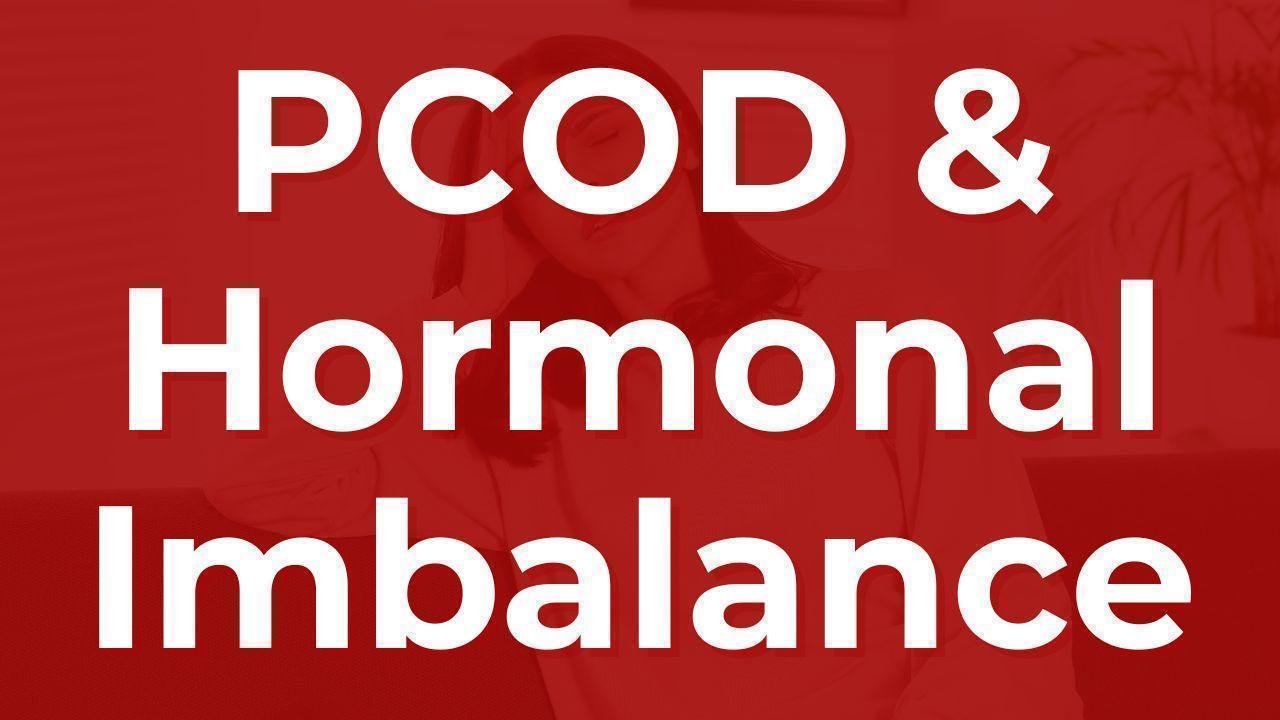You have not yet added any article to your bookmarks!

Join 10k+ people to get notified about new posts, news and tips.
Do not worry we don't spam!

Post by : Rameen Ariff
Women’s health is a vital topic that affects millions of lives worldwide. Maintaining good health is not just about physical fitness—it also includes mental, emotional, and hormonal well-being. Women face unique challenges at different stages of life, from adolescence to menopause. Two common concerns affecting many women today are PCOD (Polycystic Ovary Disease) and hormonal imbalance, which can impact menstrual cycles, fertility, weight, skin, hair, and overall health. Understanding these conditions, along with adopting healthy habits, is essential for living a strong and balanced life.
PCOD, also known as PCOS (Polycystic Ovary Syndrome), occurs when a woman’s ovaries produce higher levels of male hormones (androgens). This can cause irregular periods, ovarian cysts, acne, weight gain, and hair growth in unusual areas.
Hormonal imbalance refers to any condition where estrogen, progesterone, testosterone, thyroid hormones, or insulin levels are not in normal ranges. Hormonal imbalance can cause:
Irregular or missed periods
Weight gain or difficulty losing weight
Mood swings, anxiety, or depression
Acne, oily skin, or thinning hair
Fatigue and low energy
Both conditions are closely related and can affect fertility and overall well-being if not addressed.
Also Read :- Natural Beauty Tips: Easy Ways to Glow and Look Healthy Every Single Day
Several factors contribute to these conditions:
Genetic Factors: PCOD often runs in families.
Insulin Resistance: High insulin can increase androgen levels.
Lifestyle: Poor diet, lack of exercise, and high stress worsen symptoms.
Obesity: Excess weight disrupts hormone balance.
Environmental Factors: Exposure to endocrine-disrupting chemicals can contribute to hormonal issues.
A healthy diet is essential for managing PCOD and hormonal imbalance:
Whole Grains, Fruits, and Vegetables: Provide essential nutrients and antioxidants.
Lean Proteins: Support metabolism and hormone regulation.
Omega-3 Fatty Acids: Reduce inflammation and support hormone health (found in fish, flaxseeds, walnuts).
Limit Sugar and Processed Foods: High sugar and junk food worsen insulin resistance and hormonal imbalance.
Tip: Eating small, balanced meals throughout the day helps regulate blood sugar and hormone levels.
Regular exercise is crucial for women’s health and managing PCOD/hormonal imbalance:
Cardio: Walking, jogging, cycling, or swimming improves insulin sensitivity.
Strength Training: Builds muscle and boosts metabolism.
Yoga & Pilates: Reduce stress, improve flexibility, and support hormonal balance.
Tip: Aim for at least 30 minutes of moderate exercise daily to manage weight and hormones effectively.
Stress can worsen hormonal imbalance and PCOD symptoms. Women should:
Practice meditation or deep breathing exercises
Engage in hobbies or creative activities
Maintain social connections for emotional support
Seek professional help if experiencing anxiety or depression
Tip: Regular self-care and stress management help regulate hormone levels naturally.
Early detection and regular check-ups are essential:
Consult a gynecologist for PCOD diagnosis or hormonal tests
Monitor blood sugar, cholesterol, and thyroid levels
Consider medications if recommended (hormonal therapy, insulin-sensitizing drugs)
Track menstrual cycles and symptoms to detect irregularities early
Tip: Lifestyle changes combined with medical guidance produce the best results.
Stay hydrated (at least 8 glasses of water daily)
Prioritize 7–8 hours of sleep
Avoid smoking and excessive alcohol consumption
Protect skin from the sun using sunscreen
Maintain a balanced routine for diet, exercise, and mental wellness
Adolescence: Focus on diet, hygiene, and regular exercise
Reproductive Years: Monitor menstrual cycles, manage PCOD/hormonal balance, and maintain preventive care
Menopause: Adjust diet, exercise, and medical support for hormonal changes
Older Age: Focus on bone health, heart health, and mental wellness
Women’s health is a combination of physical fitness, mental wellness, and hormonal balance. PCOD and hormonal imbalance are common but manageable conditions. With proper nutrition, regular exercise, stress management, and medical guidance, women can regulate hormones, maintain overall health, and lead active, fulfilling lives. Awareness and early intervention are key to preventing complications and promoting long-term wellness.
The content in this article is for informational and educational purposes only. Newsible Asia strives to provide accurate and reliable information, but we do not guarantee completeness or suitability for individual needs. Readers should consult a qualified healthcare professional before following any health, diet, or lifestyle advice mentioned in this article.










Sri Lanka Ex-Intel Chief Arrested Over Easter Attacks
Former SIS Chief Suresh Sallay arrested by CID in connection with the 2019 Easter Sunday bombings th

Japan Reports Spike in Measles Cases Authorities Issue Alert
Japan confirms 43 measles cases in early 2026, prompting health authorities to warn potential contac

Korea US Clash Over West Sea Drill Communication
Conflicting accounts emerge on prior notice briefing, and apology during Feb 18-19 US air exercise i

Richard Liu launches $690M eco-yacht brand Sea Expandary
JD.com founder Richard Liu invests $690M in Sea Expandary aiming to produce affordable green yachts

China imposes export curbs on 40 Japanese firms over military ties
Beijing restricts dual-use exports to Japanese companies, citing remilitarization concerns, promptin

Malaysia moves to protect Musang King durian amid China impostors
Authorities safeguard Malaysia’s Musang King brand as durians from Thailand and Vietnam are being fa